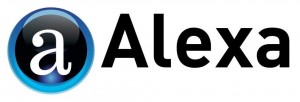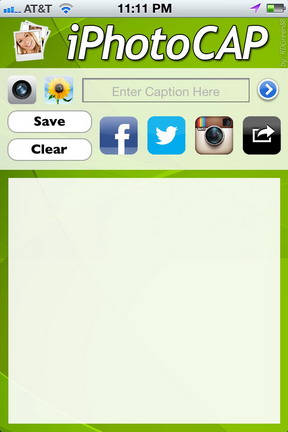The internet is big right? Okay it is massive. With that massiveness one naturally associates extreme diversity. Don’t get me wrong, across the entire internet, there is amazing variation, with billions of people adding their spin to the net.
What I am going to investigate in this post though is how diverse the ‘main’ internet is. What I mean by that is the internet that we use every day. How diverse is the most regularly used/visited content? Is there really as much choice as we think, or is the majority of the internet dominated by a few firms?
In order to go about this research I am going to use Alexa, who gather statistics on websites traffic. For most sites, the data isn’t that accurate, however for really busy sites, the numbers are so great, the reliability of the data is much higher, hence why I can use it.

Google
According to Alexa, Google.com is the most visited site on the web. How could it not be? Alexa estimates that 50% of all internet users visited Google.com in the last three months. Second on the list for most visited sites is Facebook, which is trailing with just 45% of internet users visiting the site.
Remember however that is just Google.com, Google has a massive monopoly over the internet. In the 100 most visited sites on the web, 18 of the sites are owned by Google – 16 localised sites, Google.com and GoogleUserContent.com (the site you see when there is an error finding/displaying a page).
Google undoubtedly has reduced diversity on the internet, having such a monopoly on the sites we all visit. The thing is, it isn’t just 18 sites. Google also owns YouTube and (the third most visited site on the net) Blogspot which is ranked 10th, Blogger at 47 (Blogger and Blogspot are now one) and Blogspot.in (India) ranked 73. That means 21 of the most visited sites on the net belong to Google, meaning it owns more than one fifth of the ‘main’ internet.

Google’s dominance on the web suggests that a lot of us are Googlites!
Can you call the internet diverse, when in the top one hundred sites, one firm owns more than a fifth of all sites? Maybe, what does the rest of the field look like?
Microsoft
Unsurprisingly, the company that is arguable Google’s main rival is in second place. Yahoo and Microsoft are currently in a ‘Search Alliance’ therefore restricting competition, so I am going to count them in the list of sites that Microsoft owns/influences. Here is the list of sites that Microsoft owns/influences which are top 100 websites:
- Yahoo.com – Ranked 3rd
- Live.com – Ranked 7th
- Yahoo.co.jp – Ranked 16th
- MSN.com – Ranked 17th
- Bing.com – Ranked 29th
- Microsoft.com – Ranked 30th – ironic how it is lower many of the other sites it owns!
- Flickr.com – Ranked 53rd and Yahoo owned
Therefore Microsoft own/influence 7 of the top 100 sites. Add that to Google’s 21, and 28 of the top sites on the net are owned by two firms. More than a quarter.
I am starting to think the ‘main’ internet is not as diverse as one may first assume.
Amazon
Next on the list of internet giants comes Amazon. Amazon.com is ranked 10th, whilst Amazon Germany (Amazon.de) is ranked 91st and Amazon Japan (Amazon.co.jp) is 95th. Amazon also owns the Internet Movie Database (IMDB.com) which is the 50th most visited site. Amazon owns 4 of the top 100 sites.
 32 sites gone.
32 sites gone.
Alibaba Group
The Alibaba Group is a privately owned Chinese business, which owns Alibaba.com, Tmall (tmall.com), Taobao (Taobao.com) and Sogou.com. The group therefore account for four of the sites that make up what I am calling the ‘main internet’.
36 sites taken by just 4 companies. How diverse is our internet?
eBay
Next we come to eBay.com which sits 23rd on the list of top 100 sites. eBay International AG (ebay.de) is in 80th place, followed by eBay UK (ebay.co.uk) in 86th. eBay also owns PayPal (paypal.com) which is ranked 46th.
eBay steals another 4 sites, leaving just 60 of our hundred left, and so far only 5 firms are involved.
Time Warner
CNN (cnn.com) AOL (aol.co.uk) and The Huffington Post (huffingtonpost.com) are all sites owned by Time Warner. Time Warner is the sixth business involved now, leaving just 57 sites.
WordPress
The blogging platform WordPress (wordpress.com) is ranked 19th, and its brother, which allows users to host the content management system on their own site (wordpress.org) is ranked 83rd.
 There goes another two sites, meaning just 55 left, and only seven players so far.
There goes another two sites, meaning just 55 left, and only seven players so far.
Twitter
Ranked number 8 on the list is Twitter, however its URL shortener (t.co) is ranked 31st, meaning Twitter is also one of the big players in the top 100 sites, arguably with some form of domination over the internet.
 47 sites of the top 100 accounted for and a mere eight organisations involved.
47 sites of the top 100 accounted for and a mere eight organisations involved.
The Rest
Of the final 53 sites, 5 are adult only sites leaving 48 sites – although many of these either are a part of, or are a much bigger group.
Some familiar faces appear in the other 48 sites, Facebook (2nd), Wikipedia (6th), LinkedIn (11th), Apple (34th), Tumblr (37th), Pinterest (47th), BBC Online (48th), Ask (54th), AVG (62nd), Adobe Systems Incorporated (67th), About.com (81st), ESPN (82nd), Go Daddy (85th), Netflix (89th), The Pirate Bay (92nd) and CNET (97th).
Remove these very well known, well established, and massive brands, and we are left with 32 sites – less than a third. Of the remaining sites, around half are Chinese, showing the growing influence and usage of the internet in China.
My Verdict
In this post I have established that of the sites we visit most regularly, 47 are owned by just eight organisations. Does that really represent the freedom that we all believe the internet offers?
I was surprised by the type of content, and the limited number of different sites that there are in the global top 100. It would seem that the most visited sites consist of search engines, social media sites and news websites. Interesting statistics.
So, what is your verdict on how diverse the internet we use everyday is? I personally am not quite as convinced as I was before writing this article that the internet is quite as free and diverse as we all believe.
Please note these rankings are changing all the time, and all content was correct according to Alexa.com at the time of writing – the 6th of July 2012.







